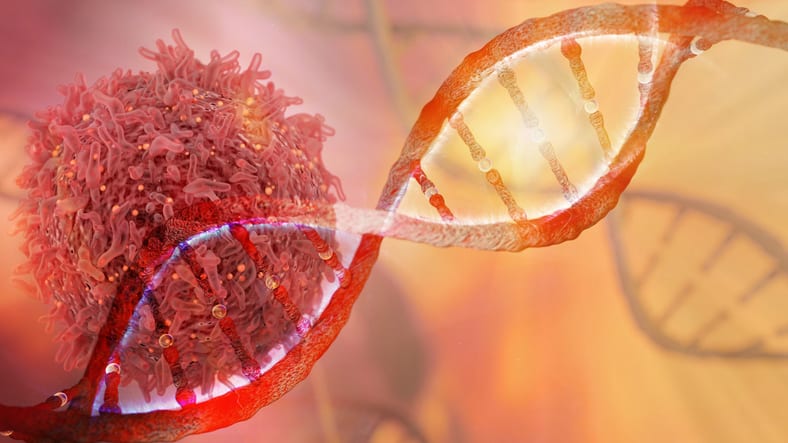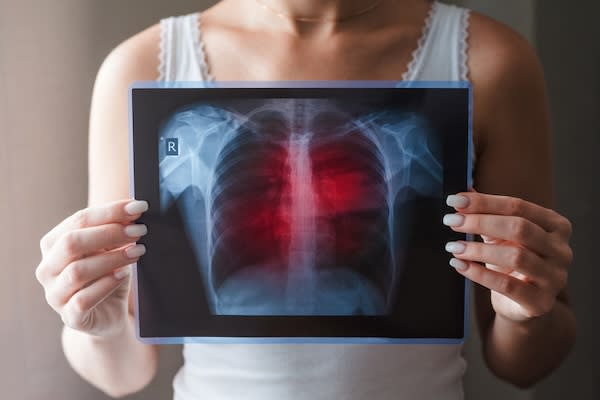Histotripsy
Pioneering Histotripsy Care in the United States
Histotripsy is a breakthrough, leading-edge treatment for advanced or metastatic liver cancer. The Providence Swedish Cancer Institute is one of the few centers in the U.S. offering this precise, noninvasive procedure, which targets and destroys cancer cells while sparing healthy tissue. Because it requires no incisions, many patients can return home the same day.

Treatment Overview
Histotripsy is a noninvasive procedure that uses precise high-intensity ultrasound waves created by a robotic machine. This advanced technology allows your surgeon to target just cancer cells, leaving healthy tissue intact.
During the procedure, your surgeon uses an ultrasound machine to find the tumor locations. A special membrane (fabric filled with water) is placed on your abdomen, over your liver, and then your surgeon directs sound waves through the membrane directly toward the tumors. This causes them to break apart, leaving microscopic debris that’s absorbed by your body. It can take from 5 to 30 minutes to treat one tumor once the process has started.
Unlike traditional or laparoscopic surgery, histotripsy doesn’t require any incisions. That means fewer risks — like bleeding or infection — and typically a faster, more comfortable recovery.
Histotripsy: Treating Cancer with Sound Waves
What to Expect
At the Providence Swedish Cancer Institute, we’ll guide you through the planning stages of your histotripsy through to discharge, recovery, and future treatment if needed. Your care team is here to support your physical healing, emotional well-being, and personal goals, so you can move forward with confidence.
About a week before your procedure, we’ll schedule a visit to:
- Assist with remaining pre-surgical lab work or tests
- Review what will happen during your procedure
- Explain potential side effects
- Discuss medications and post-surgery care, and answer any questions
You'll receive information to prepare for your arrival for your hospital admission, if necessary. If you have any questions after this appointment, you can reach out to your nurse or care coordinator, who will be happy to help.
After the procedure, most people are able to return home the same day, though in some cases, an overnight stay may be recommended — your doctor will talk with you about what’s best for your situation. You’ll need a responsible adult to drive you home.
Your care team will give you instructions on managing any discomfort and monitoring your recovery. Unless your care team tells you otherwise, you will likely be able to return to your usual activities once any effects from the anesthetic have worn off.
Because histotripsy is completely noninvasive — with no incisions or surgical wounds — there’s no scarring, less pain, and a lower risk of infection. With minimal downtime, most patients can return to their regular activities shortly after the procedure.
As with any procedure, there are risks and potential side effects, including:
- Pain and discomfort at the treatment site
- Mild swelling or bruising
- Abdominal pain
Your care team will answer your questions and talk with you about risks, as well as help you manage any side effects.
Because histotripsy is a noninvasive procedure, it doesn't require as many follow-up appointments as traditional or laparoscopic surgery. Your care team will schedule regular checkups so we can continue to manage any of your ongoing treatment needs and watch for signs of recurrence.
Supportive care services are also available to help you through every treatment stage.
Learn more about our supportive care services.
Let's Talk Histotripsy and Liver Cancer Treatments
Dr. Marc Horton discusses an exciting and groundbreaking procedure in the field of liver cancer treatment, called histotripsy. We cover what this treatment is, how it compares to more traditional liver cancer treatments, and the impact it may have on cancer treatments in the future.

Frequently Asked Questions
Not everyone with liver cancer is a candidate for histotripsy, so your doctor will discuss your treatment options based on your diagnosis. Generally, histotripsy might be appropriate for people who have three or fewer tumors that are smaller than 4 centimeters. The tumors also must be in a location where the ultrasound waves can easily reach.
This new technology is currently approved for treating liver tumors (benign or malignant), but researchers are exploring its potential to treat people with other cancers. It’s also being investigated as a treatment for non-cancerous conditions, like kidney stones.
You will be under general anesthetic for the procedure, so you’ll need to stop eating or drinking anything for several hours before. Your care team will give you specific instructions so you can prepare for your procedure, including how long you should fast and what you should do if you take prescription medications. Be sure to arrange to have someone take you home when you’re discharged.
Since histotripsy is usually an outpatient procedure, you’ll be able to go home once your care team feels you’ve recovered enough from the general anesthesia. You might feel tired or weak for a short while. You’ll also probably feel sore, but because you won’t have any incisions, the pain is usually mild to moderate. Your care team will advise you about how to manage your pain. You’ll likely be able to resume your usual activities the same day or the next.
Although this isn’t a surgical procedure, a general anesthetic is needed to keep you completely still during the process. Any movements, including a deep breath, could move the tumor even slightly, making the treatment less accurate. If you are under general anesthesia, the procedure will be more precise.
We provide a full range of supportive care services to support you during and after your cancer treatment. Some of these services include:
- Art therapists
- Cancer rehabilitation (onco-physiatry)
- Care coordinators
- Genetic counseling (cancer geneticist)
- Health educators
- Medical massage (edema, lymphedema management)
- Music therapist
- Naturopaths
- Nutritionists
- Oncology nurses
- Social workers
- Speech and language pathology
We can also help with finances, food, transportation, and other challenges for eligible patients through our patient assistance fund.
See the full list of supportive care services.
Note: Some services are provided by local partners and vary based on location. Please contact your clinic for more information.
News & Info From Our Experts



